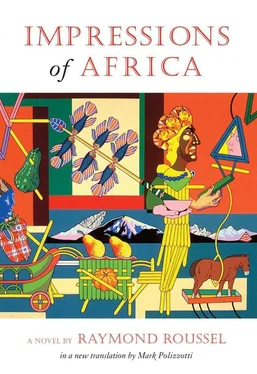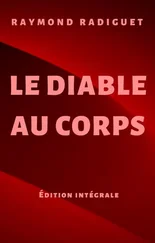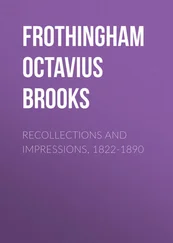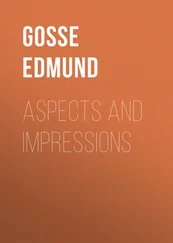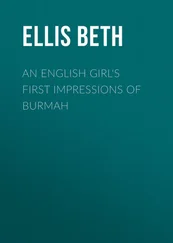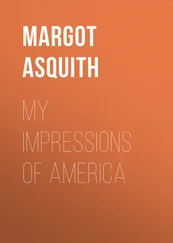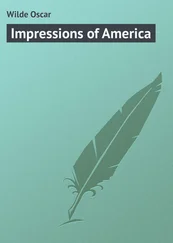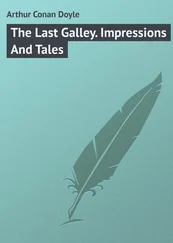In the second, “lettres” was taken in the sense of missives, “blanc” as in white man, and “bandes” as in hordes.
The two phrases found, it was a case of writing a story which could begin with the first and end with the latter.
In Impressions of Africa , the game expands to include not merely one altered sentence but a vast proliferation, in which moment after moment hinges on similarly complex puns. The examples are too numerous to detail here, but to lift the curtain on just a few:
The Luenn’chetuz, the ritual dance performed by Talou’s wives that results in copious belching, was generated by a dual interpretation of the phrase théorie à renvois : both a treatise with annotations ( renvois ) — in this case, Talou’s proclamation of his own sovereignty — and a procession ( théorie ) involving burps ( renvois ).
Revers à marguerite (lapel with a daisy in the buttonhole) becomes revers (military defeat) à Marguerite (the French name for Gretchen in Goethe’s Faust ), hence the rival king Yaour’s downfall while wearing Gretchen’s dress.
Toupie à coup de fouet (a spinning top set in motion by a yank of the string) leads to the episode in which the old frump ( toupie ) Olga Chervonenkov is paralyzed by a muscle spasm ( coup de fouet ) while attempting a pirouette.
The talking horse Romulus, a true platinum standard ( étalon à platine ) among equines, is also an étalon (stallion) à platine (with a tongue, in slang).
Maison à espagnolettes (house with window latches) yields the maison (as in dynasty) of the descendants of Suann, founded when the patriarch simultaneously married the two Espagnolettes , or young Spanish twins. ( Deux amours de Suann ? Given the frequent comparisons made between Roussel and Proust and the two men’s acquaintanceship, we can only wonder.)
None of this was apparent to the book’s few French readers, any more than it would be to their English counterparts today. Roussel the master magician kept his tricks well concealed, and only stepped out from behind the curtain to tip his sleight of hand in a posthumously published manual-cum-apologia pro vita sua titled How I Wrote Certain of My Books . With a mix of unvarnished literary altruism (“It seems to me that it is my duty to reveal this method, since I have the feeling that future writers may perhaps be able to exploit it fruitfully”), his lifelong hunger for recognition, and an almost infantile inability to withhold a really good secret, Roussel trots out example after example of his derivations like an unusually clingy merchant intent on hawking his wares.
At the same time, the process by which Roussel gave away his creative method mirrors the dual movement already encoded in Impressions of Africa : first the magic, then the revelation of its workings. At the novel’s halfway point, the author loops back to zero and starts his tale all over again, this time providing the missing back stories and justifications for the many curiosities we’ve just witnessed. Some editions even included an insert suggesting that “those who are not initiated into the art of Raymond Roussel” might wish to read the second half first. This would of course be to miss the point, for the first rule of magic is to keep your audience tantalized: dazzle before denouement.
The novelist Harry Mathews once remarked that Roussel’s language taught him how “writing could provide me with the means of so radically outwitting myself that I could bring my hidden experiences, my unadmitted self into view.” Hiding, concealment, non-admission are sewn into the fabric of Impressions of Africa —not just the behind-the-curtain mechanics of Roussel’s compositional generator, but likely something deeper as well: an incursion, despite himself, of the author’s personal reality into the “complete illusion of reality” he sought to achieve. It’s no secret today that Roussel’s proclivities ran to younger working-class males, but during his lifetime — and for decades afterward — it was cause for scandal and blackmail, and a source of mortification to his socially prominent family. We should therefore not be surprised at the role that secrecy and subterfuge play in the various plotlines of Impressions of Africa , nor, perhaps, in the fact that no adult sexual relationship in the book ends happily, and that they often have the dispassionate hue of a business transaction.
Indeed, virtually the only true love to be found here is that involving children — either the kind of substitute parent-child bond enjoyed by Velbar and Sirdah or, more often, between young quasi-siblings like Seil-kor and Nina or Meisdehl and Kalj. The painter and writer Trevor Winkfield notes that Roussel’s own love for his sister “was one of the most formative influences of his life,” and in that love seems to lie not only the kernel of the many idyllic brother-sister relationships in his work but an unhealed wound of nostalgia for the lost paradise of childhood itself. “Of my childhood I have preserved a delightful memory,” he confided in How I Wrote . “I can claim to have known at that time many years of perfect bliss.” So much so that he later said he’d felt no happiness since then, and that the memory of that former happiness was a source of torment. Just as Seil-kor after Nina’s untimely death rejects the places they had loved together, so, according to Leiris, Roussel refused to set foot in “certain towns which evoked particularly happy memories of his childhood…for fear of spoiling his memories.”
Instead, a spirit both childlike and childish infuses Impressions of Africa : marvelously, when it manifests as a constant openness to wonder, an ability to blur the lines of reality and fantasy without a grown-up’s sense of restraint; naïvely, in its conception of a benign world in which the heroes all aim to please (I am constantly amazed at how eagerly characters accede to the most outrageous requests “without having to be asked twice”), and in which the cardinal threat is boredom; selfishly, when it treats the actors in the grand gala as mere instruments of juvenile pleasure, taking it for granted that each performance will run smoothly and that nothing will break the spell; horrifyingly, when it indulges in the kind of pull-off-the-wings cruelty evidenced in the tortures and gruesome deaths of the four convicts, a dark blood-spatter on the immaculate waves of Roussel’s shifting, dazzling, treacherous, absorbing, blinding, engulfing African sands.
Every translation has its peculiar difficulties, and Impressions of Africa , with its special “method,” might seem more arduous than most. John Ashbery once noted that even though Roussel’s generative wordplay is buried well below the surface, its “presence imparts an undefinable, hypnotic quality to the text,” to which he felt no translation could do justice; whether I’ve managed to convey at least a measure of this quality I leave to the reader’s judgment. A further challenge lay in the compactness of the prose. Roussel prided himself on concision—“I forced myself to write each story with as few words as possible,” he told Leiris — and much of my effort has gone into fashioning similarly compressed English. In other respects, the pitfalls of rendering this book proved not unlike those offered by any literary text: how to capture the author’s signature style, in this case a peculiar mix of fluidity and flatness, invention and banality? how to preserve his turn-of-the-century phrasings and attitudes in a language that will speak to contemporary readers?
Then there are the author’s various idiosyncrasies and lapses, such as his frequent use of the word “certain” (a veritable tic), some continuity issues (captions that appear both above and below the image; prison bars that change from thick to narrow), and plot points that beg herculean suspensions of disbelief (did Louise and her brother really lug that sack of machine parts across half a continent? would the cannibals have let the captured Velbar keep his rifle? would his watercolor sketches still be so pristine after eighteen years in the jungle? — and how fortunate that he thought to bring along his art supplies while fleeing for his life!). Chalk it up to the quirks of genius.
Читать дальше
